Don't wait and procrastinate. Handle the situation before the situation handles you

Don't wait and procrastinate. Handle the situation before the situation handles you
Procrastination is a common behavior that many people struggle with on a daily basis. It is the act of delaying or postponing tasks or decisions, often due to feelings of laziness, fear, or overwhelm. While procrastination may provide temporary relief or avoidance of a task, it can ultimately lead to negative consequences and increased stress in the long run.The quote “Don't wait and procrastinate. Handle the situation before the situation handles you” emphasizes the importance of taking action and addressing tasks or challenges promptly. By procrastinating, we allow the situation to control us rather than taking control of the situation ourselves. This can result in missed opportunities, increased pressure, and a sense of being overwhelmed by tasks that have piled up over time.
Procrastination can have a significant impact on various aspects of our lives, including work, relationships, and personal well-being. In the workplace, procrastination can lead to missed deadlines, poor performance, and strained relationships with colleagues. In relationships, procrastination can result in unresolved conflicts, communication breakdowns, and feelings of resentment. On a personal level, procrastination can lead to feelings of guilt, anxiety, and low self-esteem.
To overcome procrastination, it is important to develop effective time management skills, set realistic goals, and break tasks down into smaller, more manageable steps. By taking proactive steps to address tasks and challenges as they arise, we can prevent feelings of overwhelm and reduce the likelihood of procrastinating in the future.
It is also important to identify the underlying reasons for procrastination, such as fear of failure, perfectionism, or lack of motivation. By addressing these root causes, we can develop healthier coping mechanisms and strategies for managing procrastination.
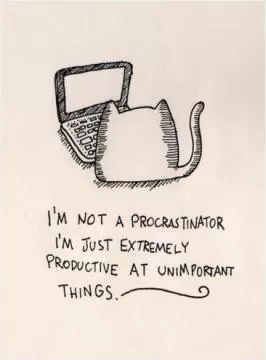

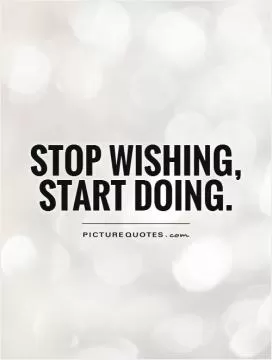
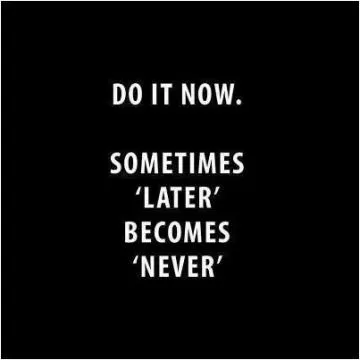



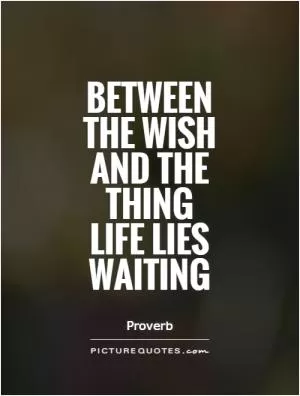
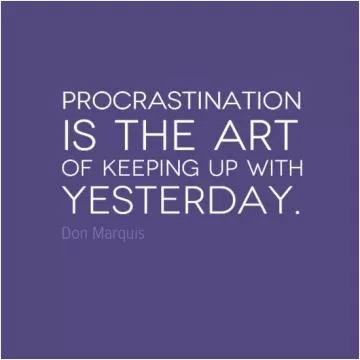



 Friendship Quotes
Friendship Quotes Love Quotes
Love Quotes Life Quotes
Life Quotes Funny Quotes
Funny Quotes Motivational Quotes
Motivational Quotes Inspirational Quotes
Inspirational Quotes